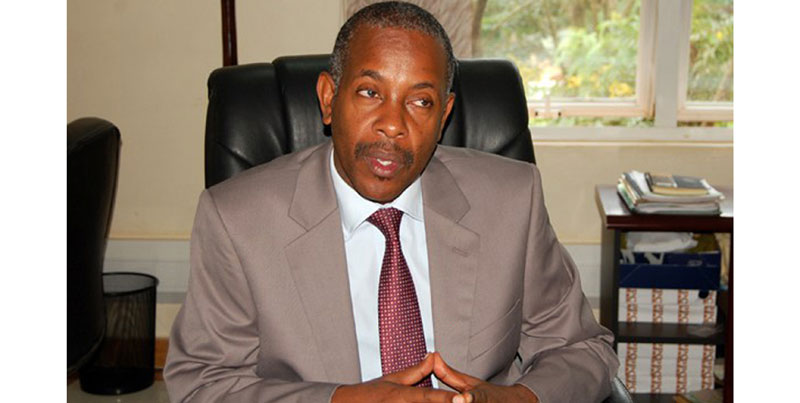The ongoing food shortage across the country that arose from the prolonged drought last year, beans, and cassava for purposes of boosting food security.
According to the minister of Agriculture Vincent Ssempijja, cabinet has agreed to spend Ushs54 towards the purchase of seeds for food crops. The decision represents a major shift in policy that preferred coffee and fruit trees.
But The Sunrise has reliably learnt that the decision by the government to turn focus on food is a temporary measure aimed at plugging the existing gaps for planting materials for commonly grown crops such as maize, beans and cassava after many farmers turned to saved seed to deal save themselves from hunger.
Major James Nkojo, the Spokesperson of Operation Wealth Creation (OWC) told The Sunrise that: “This is a temporary focus on food production. The decision was taken as a way to support farmers improve food production following the prolonged drought that affected the whole country.”
Sensitization done
The year-long drought that affected most parts of the country last year not only threatened lives of hundreds of people who were left without food, the drought adversely affected the tender planting materials that were distributed to farmers.
In an effort to increase the survival rate of the planting materials distributed, Nkojo revealed that OWC has intensified sensitization of farmers including teaching them how to irrigate their crops.
The Sunrise has further learnt that in order for the government not to lose sight of its goal of boosting coffee production, OWC will continue with the distribution of coffee seedlings.
“Our target remains boosting coffee production by up to 20 million (60kg) bags of coffee by 2020.” With only three years left to the year 2020, Uganda and more specifically the sitting NRM government faces an uphill task of quadrupling coffee production from about 4m to 20m bags.
Challenge of seed quality
While the renewed sense of focus on food security may be a welcome and perhaps popular move among Ugandans, experts have raised concerns about creating excess demand for seed which they say has been a driver of fake seeds on the market.
But Maj. Nkojo allays fears that this time, the government intervention in food will not overwhelm the seed markets because seed companies had planned for the abrupt rise in demand.
Seasonal forecast
The government’s plan to distribute seeds for staple crops faces increased pressure following the early onset of rains in most parts of the country.
In its season forecast for March to May, the Uganda National Meteorological Authority confirmed the onset of the rain season in February in some parts of the country.
According to UNMA, most parts of Uganda are projected to get normal to above normal rainfall.
“Overall, there is an increased probability for above normal rainfall for western sector of Uganda, normal rainfall for central, Lake Victoria Basin, south-eastern, and central-northern Uganda, and below normal rainfall for Karamoja region and some parts of Lango and Acholi regions,” says UNMA in its latest forecast released this week.
The meteorological experts also indicate that the forthcoming rain season is likely to last longer compared to recent March-May seasons with cessation of rains expected to happen in June.
For areas that are expected to receive good rains, the authority urges farmers in to maximize the expected good season by securing inputs and carry out early land preparations, which will allow timely planting.
“Plant long maturing crops like millet, rice, sorghum, maize, cassava, sweet potatoes, coffee cuttings (clonal coffee) on the start of rains and short quick maturing crops later as the rains progress such as legumes, root tubers and vegetables,”
The authority also encouraged to carry out soil and water conservation practices such as digging trenches, mulching, minimum tillage (ripping, raised beds, planting basins).








